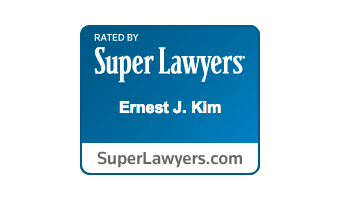Your Documents:
When our clients leave our office upon the conclusion of creating their Trust Packages with us, they will have all of their original documents with them, including multiple original “Certification of Trust” documents for their use in conducting Trust related transactions such as opening and managing Trust bank accounts, investments, real property, etc.. The Certification of Trust is a complete and sufficient document evidencing the Trustee’s identity and legal authority to conduct transactions pursuant to the California Probate Code. We would also have provided our former client with their recorded deeds evidencing Trust ownership of real property, if trust funding services were performed by our offices.
Clients should keep possession and control over their original documents at all times. The original estate planning binder along with insurance documents should be stored in that safe location at all times, and care should be taken to keep these important documents in a location that cannot be accessed by persons adversely affected by the terms of the Will or Trust (i.e. disinherited parties or parties who would benefit if the estate plan did not exist). However, the named successor Trustee/s Executors should be informed of the exact location where they can find these important documents and any details (combinations to safes, etc) needed for them to access the documents when they are needed. The original Trust, Durable Power of Attorney for financial management, Will, and Advance Health Care Directive must be available to the client’s nominated fiduciaries.
If a former client of our firm does not have their original documents for any reason, they should contact us to discuss how to resolve this problem, since the original Trust should always be safeguarded and will be needed in its original form to be effective (copies DO NOT have the same effect). Original documents are very important and they should not be left with anyone, marked up, torn, or otherwise altered. If trust instructions need to be changed or updated, a separate Amendment document is needed; the original should remain unchanged.
By law, attorneys cannot reveal or release any client information to anyone, without obtaining written releases from the client or former client. If at any point, a former client’s relatives, realtors, bankers, etc. contact our office to ask us to provide copies of any client file documents or to ask other questions specific to a client’s matter, our attorneys and staff cannot release any information without first receiving written confirmation authorizing release from the client. There are certain limited exceptions to the confidentiality laws that could apply if the requester provides other documents evidencing the former client’s death or incapacity (see below), but otherwise, the former client must be the ones to contact us to make the request with a completed, signed File Retrieval & Authorization to Release Copies/Information form along with a valid form of identification. This is to protect our clients’ privacy and important confidential information, and how we must conform to our legal and ethical obligations to safeguard the confidential information entrusted to us by our clients.
Once the completed and signed File Retrieval & Authorization to Release Copies/Information form and ID are received, our staff must verify the client’s identity and signature, locate and review the firm’s file copy archives for that closed client matter, confirm whether the requested document copy is available from storage. Unfortunately, we cannot retain all of our closed files indefinitely and no one can guarantee that file copies will always be available. If the former client file is available, our staff must then locate, copy/format and package the requested documents, and send them via a secure method to the parties authorized by the CLIENT to receive them. This process requires extensive staff time and resources, for which we charge a nominal fee.
Moreover, copies of documents do not have the same effect as originals. It is very important that Clients SECURELY STORE their own original documents at all times. Most Clients have their original documents safely stored so file copy retrieval services from us should never be necessary. If your original Trust documents have been lost, file retrieval alone from our copy archives (if available) will NOT solve the problem, and additional services will be needed to replace lost originals; former clients should contact our office immediately to discuss lost original documents with us.
What if I’m the Successor Trustee or POA Agent for Someone, and I Can’t Find Their Original Estate Planning Documents?
When a client of our firm leaves our office upon the conclusion of creating their Trust Package with us, they will have all of their original documents with them. We advise that our clients store their important documents, including their estate planning binder along with insurance information, in a safe location that is known to their successor Trustee/s Executors at all times. If after inquiries in the family and a search of the Decedent or incapacitated person’s home and personal effects, the original estate planning documents are not found, a search for any copies should be conducted. If our firm assisted in the creation of a Trust or other estate planning document, it is possible, but not guaranteed, that we may have a copy of the document in our file storage archival facilities.
By law, attorneys cannot reveal or release any client information to anyone without obtaining written releases from the client or former client. There are certain limited exceptions to the confidentiality laws that could apply if there is a certified death certificate or a medical provider’s affidavit evidencing the former client’s death or incapacity. In that situation, the Successor Trustee (for a deceased former client) or Durable Power of Attorney agent (for an incapacitated former client, can contact us to make a request for a file archival search and copy retrieval if they provide us with a completed and signed 3rd Party File Retrieval & Authorization to Release Copies/Information form along with their valid form of identification and the certified death certificate or a medical provider’s affidavit evidencing the former client’s death or incapacity. This is necessary to protect our clients’ privacy and important confidential information, and how we must conform to our legal and ethical obligations to safeguard the confidential information entrusted to us by our clients.
Once the completed and signed 3rd Party File Retrieval & Authorization to Release Copies/Information form and ID are received, our staff must review and authenticate the provided information to confirm that the release of document copies or information to the requesting party/ies will not violate our legal and ethical obligations to safeguard attorney-client confidentiality. Our staff must verify the signer’s identity and signature, locate and review the firm’s file copy archives for the closed client matter, confirm that the requested document copy is available from storage, copy/format and package the requested documents, and send them via a secure method. It is also possible that after the search and retrieval, we find that the party requesting the file copies is not the proper party named in the former client’s document copies available to us, in which case the proper party may need to be contacted to perform this process. These procedures require that we expend extensive staff time and resources, for which we charge a nominal fee.
However, if file copies are available, there could still be additional issues that must be addressed by the successor Trustee or POA agent because of the complications that may arise when original documents cannot be located. For example, if the original documents can’t be located, how can all parties be satisfied that the estate plan wasn’t revoked or destroyed by the grantor? What if any copies in our file archive storage facility might be outdated, because they might have been replaced with newer documents with another attorney after our representation ended? If original documents are missing, many issues arise so it is very important that the Successor Trustee or DPOA agent immediately begins to work closely with a Probate and Trust attorney who can help them determine and establish their legal authority to act on behalf of the deceased or incapacitated family member because in most cases, copies of documents do not have the same effect as originals.





